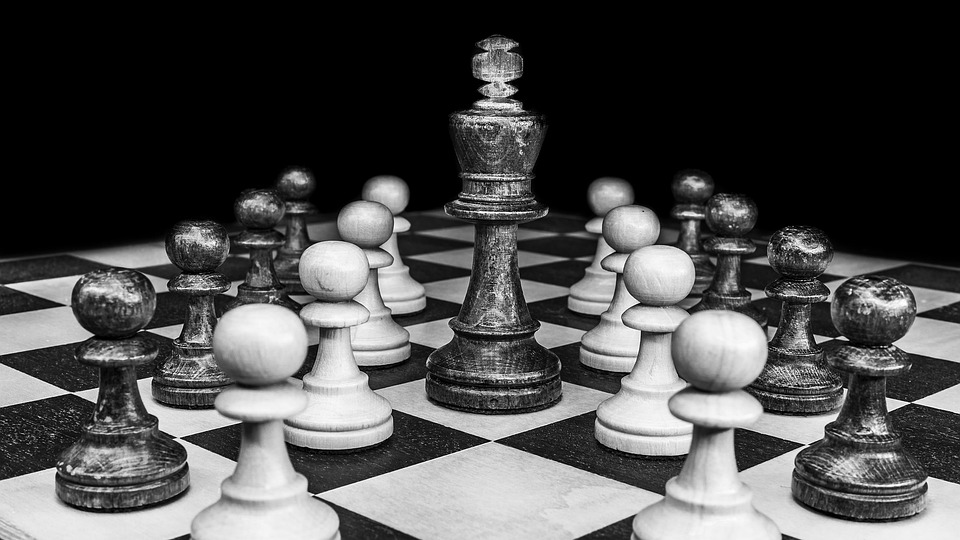Strategy games have long captivated players with their complex mechanics and the intricate balance of strategy, luck, and skill. Yet, beneath the surface-level appeal of intricate moves and resource management lies a deeper, more compelling layer: the psychological warfare that unfolds between opponents. These games demand not only tactical thinking but also an acute understanding of human behavior, cognitive biases, and emotional responses. This article delves into how psychological warfare manifests in strategy games and the mind games involved.
The Nature of Competition
At their core, strategy games are a battleground for ideas and tactics. Players often find themselves in direct competition, with each move having immediate implications for opponents. This competitive environment breeds psychological tension, where understanding the motivations and tendencies of one’s opponent becomes as critical as the in-game decisions themselves.
Reading Your Opponent
The first step in psychological warfare is gauging your opponent’s mindset. Experienced players will often spend time observing their rivals’ behaviors—how they respond under pressure, their playing styles, and their typical strategies. This observational approach can provide invaluable insights that can be exploited to gain an upper hand.
For instance, in a game like Chess, players may push their opponents into situations they are unaccustomed to, prompting mistakes born from frustration or confusion. A well-timed bluff can unsettle even the most seasoned players, causing them to second-guess their strategies.
Misdirection and Deception
Deception plays a central role in many strategy games. Players instill confusion by using tactics that deviate from their typical strategy. For example, in games like StarCraft, a player might feign an aggressive attack while secretly building an extensive defense, aiming to catch the opponent off-guard. By creating an illusion of vulnerability, players can draw opponents into traps while preparing for a counter-offensive.
Psyche and perception become weapons; making a seemingly weak move can evoke overconfidence in your opponent, leading them to underestimate your position. This tactic aligns with the psychological principle of confirmation bias, where players seek information that confirms their assumptions, often ignoring contradictory evidence that could lead to their downfall.
Emotional Manipulation
In addition to tactical manipulation, psychological warfare often involves emotional elements. Players can utilize aggression or intimidation to unsettle opponents, leveraging emotions like fear, anxiety, or overconfidence. This manipulation can manifest in various forms, such as aggressive gameplay or taunting in multiplayer environments, as seen in digital platforms like League of Legends or Dota 2. The psychological toll of these tactics can lead to poor decision-making, where players act emotionally rather than strategically.
Conversely, fostering a calm and collected demeanor can serve as an effective counter-strategy. When opponents sense steadiness, it can provoke them to act impulsively, disrupting their focus and leading to compute errors.
The Role of Uncertainty
Uncertainty is a double-edged sword in strategy games. Players often face unpredictable scenarios, both in terms of game mechanics and opponents’ choices. The ability to thrive amid uncertainty requires a combination of tactical prowess and psychological resilience. Players who can keep their cool while others falter gain a significant advantage.
Additionally, the unpredictable nature of strategies forces players to be flexible in their approaches, adapting to changing circumstances without losing sight of their goals. This ability to pivot reflects both tactical ingenuity and psychological fortitude.
Developing Meta-Strategies
At a higher level, players often engage in meta-strategies—approaches that involve understanding and predicting the broader trends within the game. For instance, savvy players will analyze not just individual games but entire seasons or tournaments to identify the most effective strategies. This analysis goes beyond the mechanics and enters the realm of psychological warfare, as players adjust their strategies based on collective knowledge and psychological trends.
By understanding the prevailing mindsets and strategies within the community, players can tailor their approaches to gain a strategic advantage. This level of foresight emphasizes that in strategy games, success is not merely about the mechanics; it’s about anticipating and manipulating human behaviors.
Conclusion
In the world of strategy games, the battlefield extends far beyond the board or the screen. Players engage in a complex dance of tactics, deception, and psychological manipulation. The depth of understanding necessary to navigate this landscape highlights the intricate interplay between strategy and mental warfare.
As players hone their skills, they often cultivate not only their strategic acumen but also their emotional intelligence, intuition, and psychological insight. This duality makes strategy games a rich field for both competitive play and psychological exploration. Whether you are a seasoned veteran or a newcomer, embracing the psychological aspects of gameplay can elevate your experience and performance, transforming each game into a multifaceted conflict of minds.



